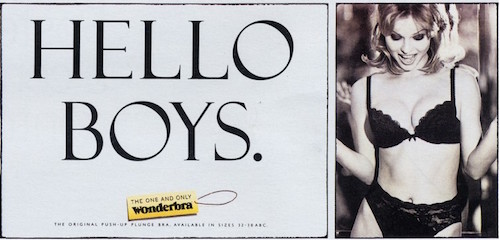Over the decades, people have been taken on a sexual liberation tour that has challenged sexual norms. During the 1970s and 1980s, pop bands such as Queen tantalised audiences by singing “I am like a sex machine ready to reload/Like an atom bomb about to oh oh oh oh oh explode,” and manufacturers of everything from cars to cigarettes featured pretty women in their advertising, hoping to boost sales. More recently, we have seen Marks & Spencer create saucy adverts for its food, a style dubbed “food porn”. It would be easy to think that sex is the key to selling almost anything.
In the past, it has been claimed that sexually-laden advertisements grab consumers’ attention, enhance memory of the brand, establish positive attitudes, and increase the likelihood of purchase. But sexually-themed adverts don’t attract as much attention as they used to – indeed, it’s been a while since we’ve heard of drivers becoming distracted by roadside billboards of women in underwear.
So does sex still sell? According to a recent study, it appears not.
Published in the International Journal of Advertising, a new analysis that compared the results of 78 research studies between 1969 and 2017 found that while people remember adverts with sexual appeal more than those without, the enhanced recollection does not extend to the product or brand that advert is selling. Not only that, but the sexual ads can have a negative impact on how a brand is perceived. While, overall, men view sexual imagery in advertising more favourably, and women view it more negatively, in neither case is there any evidence that the ads generate a greater chance of purchasing the product.
Conditioned to react
Some of the past success of using sexual imagery in advertising has been attributed to what psychologists call “classical conditioning”, a method that can, if used correctly, enhance attention and memory. Classical conditioning happens when the sexual arousal prompted by the advert is subconsciously transferred to the product or brand, leading to a feeling of arousal when exposed again to the product or brand, generating a “feel-good effect” for the product.
The problem is that if people are continuously faced with a large volume of sexual imagery, they eventually become desensitised to it and so no longer experience physiological arousal. This is what has happened as a barrage of sexually-charged advertisements have become a permanent feature of the advertising landscape. What started out as something novel – in step with the sexual liberation of the 1960s and 1970s – has now turned into something mundane and everyday, even frowned upon.

Peta
This is particularly true for charitable advertising. Numerous female celebrities have stripped for charities such as PETA, but it has been found that using sexualised imagery can be seen as dehumanising to women, leading to a subsequent decrease in support for the brands or companies in question. Interestingly, both men and women adopt negative views of ethical causes “exploiting” women in this way, as the audience ends up questioning the integrity of a charity which would seemingly benefit from taking advantage of women.
Seen it all before
As we now live in a world where sexual imagery can be found easily online, scantily-clad men and women in advertising are not going to capture the attention and generate the arousal they once did. Society has changed, and so has advertising. Overtly explicit sex adverts are no longer deemed fashionable. Consumers want advertising that feels up-to-date. There has been a big political shift that is altering peoples’ interest and focus, and a big part of this is the recent political upheaval in the US.
To capture consumers’ attention something less frivolous is needed, as people feel a need to right the wrongs in the world. Racism, sexism, and environmentally friendly products are examples of topics that consumers now zoom in on. For example, Kenco coffee has cleverly tapped into the newfound consumer interest in social politics, with adverts that suggest that drinking their coffee will rescue young men in Honduras from becoming gang members. This allows people to feel socially active while still indulging in consumerism. There are many examples of products and brands that are willing to use politically-based messages to further their image.
Consumers also want “experiences” as their expectations of what a product should do have increased considerably through the years. Of course, this is difficult to deliver through traditional advertising. This is why we have seen a shift in marketing towards more “hands on” communication, using in-store virtual reality, or smell and taste to evoke memories, as it is often more persuasive.
And with these shifts in audiences’ expectations, the sexually-based advertisements are on their way out. Sex is unlikely to ever go away, of course, but it is much less likely to be featured in mass media messaging once it no longer gels with the modern consumer.
Cathrine Jansson-Boyd, Reader in Consumer Psychology, Anglia Ruskin University
This article was originally published on The Conversation. Read the original article.
Image: The infamous 1994 Wonderbra advert featuring Czech model Eva Herzigova.
TBWA/Wonderbra














